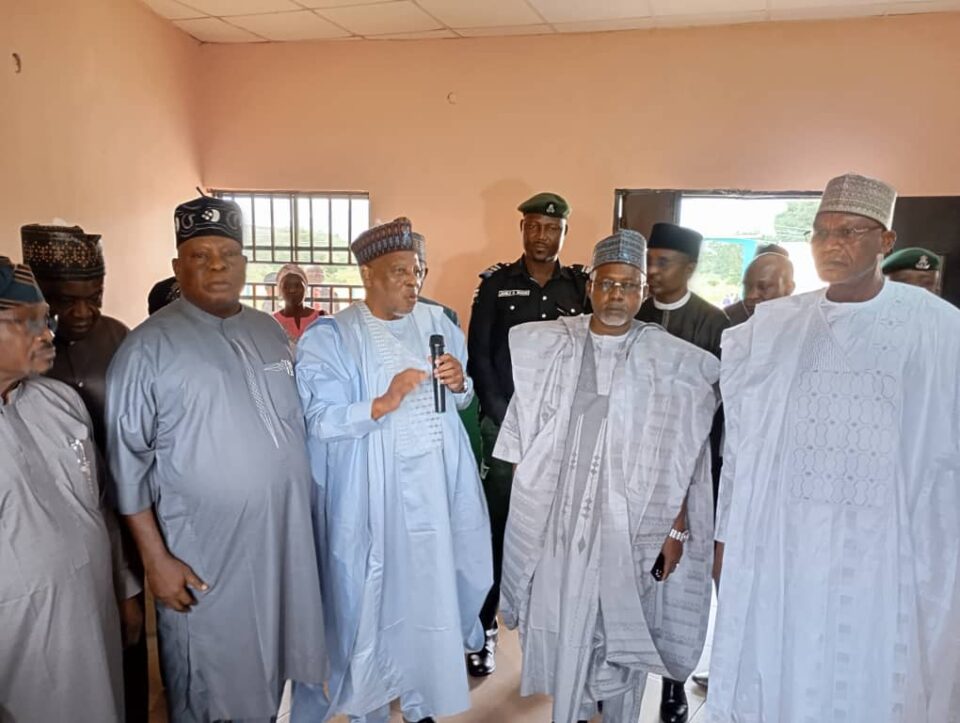By Felix Khanoba
The Federal Government has terminated the contract of the firm responsible for constructing a smart school project in Kebbi State, citing delays in execution.
The contract has been re-awarded to a different contractor to ensure timely completion.
This was disclosed by the Minister of State for Education, Dr. Yusuf Sununu, during an inspection tour of smart school in Karshi, Abuja, alongside the Minister of Education, Prof. Tahir Mamman, on Tuesday.
Sununu also indicated that the contract for the smart school project in Bayelsa State is undergoing due process for revocation and re-award to a new contractor.
This measure, he noted, is aimed at ensuring that every state benefits equally from the federal government’s initiative to integrate technology into education through the smart school program.
“The two schools that are lagging behind—Kebbi’s has already been revoked and re-awarded to another contractor, while Bayelsa’s is in the process of being similarly reassigned—so that no state is left behind in the smart school application of technology in education,” Sununu said.
The minister expressed concern over the failure of some states, where smart schools have been completed and handed over, to provide the 75 teachers required by the federal government for training to run the schools effectively.
He urged other states to follow the example of the Federal Capital Territory (FCT) administration, which has expanded the scope of its smart school by providing roads, hostel accommodation, and a full complement of staff.
Sununu further called on traditional rulers and residents of Karshi to ensure the security of the facilities, emphasizing that they are the primary beneficiaries of the services offered.
The Smart School project, spearheaded by the Universal Basic Education Commission (UBEC) in partnership with the Korea International Cooperation Agency (KOICA), aims to enhance the capacity of teachers in the development and use of ICT content, thereby improving access to quality teaching and learning materials for both teachers and pupils.
During the tour, Prof. Tahir Mamman highlighted the government’s commitment to technology-driven education, designed to foster creativity and critical thinking in students.
“This is the kind of institution we aspire to have across the country—one that integrates technology into learning from the earliest stages and promotes interactive education for young learners,” Prof. Mamman said.
He lauded the pioneer staff of the Karshi smart school, encouraging them to take their roles seriously as the school is set to become a model for training other teachers and institutions.
Mamman reaffirmed the government’s plan to establish a smart school in each state of the federation, noting that 26 such schools are currently operational, with construction ongoing in the remaining states.
“This initiative is part of the legacy this administration is delivering to Nigerians—a digitalized school system where students are trained in the use of technology from kindergarten through to basic and junior secondary school,” he added.
He also emphasized that the schools will combine conventional education with vocational training, equipping students with practical skills that will serve them in life.
On the issue of security, particularly for the Karshi facility, which is located on the outskirts of town, Mamman assured that the government has implemented comprehensive security measures. These include the deployment of both armed and unarmed security personnel, as well as collaboration with host communities to ensure the safety of the schools.
“A strong community partnership is crucial not only for security but also for the overall impact of these institutions on their surroundings. The smart school in Karshi, for example, will contribute to the local economy and serve as a training hub for teachers in the area,” he added.



